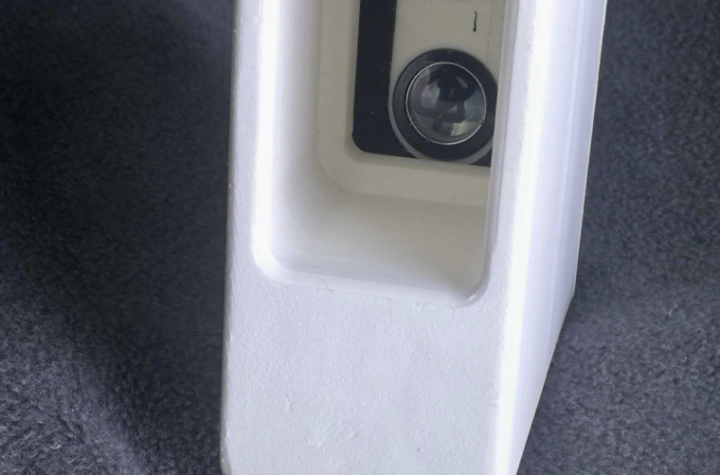

Development of the processing technology needed to support autonomous driving has been fueled through the raising of 50 million Euro in funding by Austrian technology major TTTech.
Funding by General Electric (GE Ventures) and Infineon Technologies will strengthen TTTech’s leadership position in the networking and software solutions in the Industrial Internet of Things (IoT) and autonomous driving vehicles, according to the company. The funding was backed by a strong commitment of existing shareholders led by automotive manufacturer AUDI AG.
“Audi is a pioneer of piloted driving. Since 2010, we have set one technical milestone after the other,” says Ulrich Hackenberg, Member of the Board of Management at AUDI AG for Technical Development. “The new Audi A8, which we plan to launch in 2017, will be the first model to make the transition from assisted to piloted driving. The capital increase in TTTech strengthens our strategic technological roadmap towards piloted driving in series production.”
Automotive Industries (AI) asked Stefan Poledna, co-founder and member of the executive board at TTTech, how the funds will be invested.
Poledna: We plan to focus even more strongly on autonomous driving and the Industrial Internet
of Things (IoT) by strengthening our product roadmap and our engineering, especially our international support teams in Europe, North America and Asia. In addition to supporting organic growth, the funds will be used for strategic acquisitions of complementary products and technologies.
AI: Why was it imperative for the company to raise funds at this point?
Poledna: TTTech has successfully deployed its Deterministic Ethernet network products and safety platform for mixed-criticality applications in the automotive, industrial and aerospace markets. Due to the current dynamic market transition to more autonomous operation and the need for safe and secure connectivity in the IoT, we see ample opportunities for growth in these segments. Our strategy is to transform from a technology leader to a market leading position. In the targeted segments, powerful strategic shareholders and a strong equity base are important success factors for accelerated growth.
AI: Tell us about the work TTTech will be doing to make Audi’s piloted driving dream a reality.
Poledna: Audi recognized very early what is now an emerging trend towards using a single ultra-high integrated domain ECUs instead of a number of different ECUs. Using separate ECUs does not provide the same level of synergies as the domain ECU. TTTech has been architecting this ECU for Audi and has taken responsibility for the ECU’s safety concept and platform software as well as for the integration of all the different software applications.
Working with Audi our company has developed a high-performance domain ECU called zFAS that sets a new benchmark in terms of performance combined with safety and the capability to integrate a rich set of ADAS functionalities. This platform can host several dozen different functions or applications which will be used in future “advanced driver assistance systems” on the journey from piloted to autonomous driving.
Due to the multi-core processing design supported by our Deterministic Ethernet solution, very high data rates can be used and handled to process the vast amount of data that is coming from a multitude of sensors scanning the environment. Applications are strictly separated and can be run in parallel, and even in different security and safety classes.
AI: What are some of the breakthroughs TTTech has made in automotive technologies?
Poledna: We have successfully transferred high-level technology from aerospace to automotive while meeting cost targets. TTTech was a pioneer in 2008 regarding the delivery of pre-ISO 26262 standard ASIL D software in an automotive serial product. This software was rolled out later on together with our partner Vector within the complete AUTOSAR environment.
Another example is our middleware platform TTIntegration that works with our high-speed Deterministic Ethernet network solution to drive complex and high-performance ADAS systems. It is very scalable, can connect several high-performance multi-core CPUs and supports efficient integration of many application functions with different safety criticality levels. We think that this platform with all its features is an industry first.
AI: What are your plans to further expand TTTech’s scope of expertise in networking technologies for the automotive sector?
Poledna: TTTech has successfully developed Deterministic Ethernet switches. This will become a major focus area in the automotive industry as there is a strongly increasing demand for more bandwidth within onboard networks and the need for real-time, safety, audio/video and security on a single network.
A first result of these activities is a dedicated automotive Deterministic Ethernet switch that has been successfully developed in cooperation with NXP. TTTech provides the switch IP while NXP implements the IP into Ethernet switch solutions. One of the first OEMs to use this NXP switch in serial cars will be BMW.
Another trend which we are seeing at the horizon is virtualization. The same trend that has been revolutionizing data centers and IT will come to the car as it provides so much more flexibility and protection. TTTech has already developed first solutions to support this trend with virtualization capable Deterministic Ethernet solutions.
AI then asked Georg Kopetz, co-founder and member of the executive board at TTTech, what the company’s vision is for the Idustrial IoT.
Kopetz: The concept of the Internet of Things encompasses many distinct technology trends. Global Deterministic Ethernet standards are being created within major industry standardization bodies like IEEE and SAE. This paves the way for seamless communication within the Industrial Internet combined with the classic IT infrastructure and even for high-speed automotive real-time safety networks.
Our vision is to enable the real-time Internet of Important Things for assets and machines. Hard real-time networking and control are traditionally fields in which safety, security and guaranteed operation are key requirements. Such systems have typically remained closed to the wider internet network. The real-time IoT is the trend that will drive the application of IoT connectivity to hard real-time systems and will enable completely new synergies, solutions and business models by bridging the industrial control and the IT / cloud domains.
AI: How will TTTech’s hardware and software solutions across automotive applications help make this vision a reality?
Kopetz: Our products make use of Deterministic Ethernet to deliver Guarantee of Service to mixed-critical systems that will in future be connected to an open IoT infrastructure. The solutions are designed to ensure high availability and protect critical network traffic against Denial of Service and network flooding. This allows an extension of the Ethernet network into control applications whilst retaining deterministic performance.
AI: Tell us a little about TTTech’s history with Audi.
Kopetz: The collaboration between TTTech and Audi started in 2000 with our assistance in implementing deterministic communication systems. Our support led to the delivery of high-performance communication software in the Audi A8 by 2008. More similar platforms in different Audi models followed. TTTech also gave strong support in developing high-level testing devices as well as advanced ECUs for chassis functions.
AI: What are some of the critical challenges facing autonomous vehicles?
Kopetz: It’s all about safety and availability. And, of course, security and automotive-grade reliability. In addition, data volumes and the demand for processing power will increase dramatically. Extremely high requirements on security and safety will be comparable to those in avionics.
AI: What are some of the future innovations TTTech is working on?
Kopetz: The Industrial IoT or Industry 4.0 has the goal to implement the intelligent factory of the future. This requires the connection of cloud-based IT infrastructure with real-time control systems. Together with KUKA, a leading supplier of robot-based automation, we are addressing these requirements by joining forces in a strategic cooperation. We will jointly invest in real-time technology platforms and start-ups in order to implement Industry 4.0 solutions based on Determinitic Ethernet solutions and the emerging TSN standards even more efficiently for customers.











More Stories
Click Shield from MIKROE simplifies integration of Arduino Portenta with over 1600 Click boards
Optimizing Mid-Power Silicon MOSFETs for Automotive Applications
Paolo Pininfarina named the 2024 Laureate of The American Prize for Design